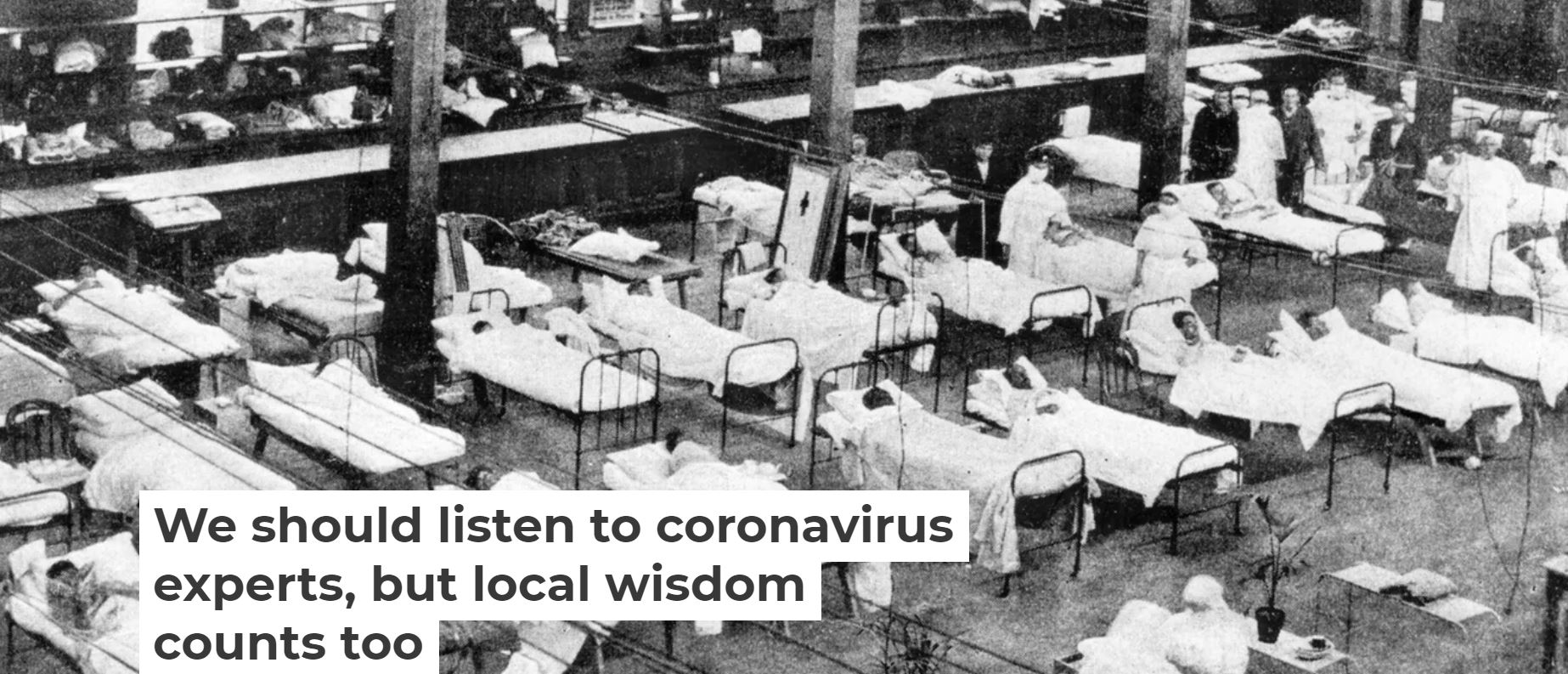We should listen to coronavirus experts, but local wisdom counts too
COVID-19 presents a social as well as a medical crisis, and we will need many different kinds of expertise to survive it.
COVID-19 presents a social as well as a medical crisis, and we will need many different kinds of expertise to survive it.

Public health messages about COVID-19 have been inconsistent and changed rapidly. Many have called for a unified source of expertise to guide responses to the crisis.
However, with the federal, state and local governments, as well as international bodies, offering different advice, it is no simple task to “listen to the experts”.
In uncertain situations such as the COVID-19 pandemic, biomedical and public health experts contribute facts and their own judgements about risk to our collective thinking and decision making.
The public also have important contributions to make. In response to the spread of coronavirus, community groups are setting out to care for elderly neighbours. People are remembering the importance of nurturing community connections and developing an understanding of the structural burdens placed on women in times of crisis.
Alongside traditional kinds of expertise, this kind of “real time” expertise and leadership at the local scale will be invaluable in coming weeks and months.
Read the full article in The Conversation co-authored by Professor Matthew Kearnes and Declan Kuch from UNSW School of Humanities and Languages, and Associate Professor Niamh Stephenson from UNSW School of Social Sciences, along with colleagues from the University of Melbourne, Australian National University and University of Adelaide.